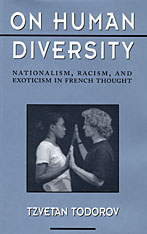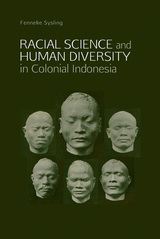
How can we think about peoples and cultures unlike our own? In the early modern period, the fact of human diversity presented Europeans with little cause for anxiety: they simply assumed the superiority of the West. During the eighteenth century this view was gradually abandoned, as thinkers argued that other peoples possessed reason and sensibility, and thus deserved the same respect that Westerners accorded themselves. Since that time, however, Enlightenment belief in the universals of human nature has fallen into disrepute; critics allege that such notions have had disastrous consequences in the twentieth century, ranging from prejudice to persecution and outright genocide.
Tzvetan Todorov, an internationally admired scholar, aims in this book to salvage the good name of the Enlightenment so that its ideas can once more inspire humane thought and action. The question he poses is of urgent relevance to the conflicts of our age: How can we avoid the dangers of a perverted universalism and scientism, as well as the pitfalls of relativism? Since the French were the ideologues of universalism and played a preeminent role in the diffusion of Enlightenment ideas in Europe, Todorov focuses on the French intellectual tradition, analyzing writers ranging from Montaigne through Tocqueville, Michelet, and Renan, to Lévi-Strauss. He shows how theories of human diversity were developed in the eighteenth century, and later systematically distorted. The virtues of Enlightenment thought became vices in the hands of nineteenth-century thinkers, as a result of racism, nationalism, and the search for exoticism. Todorov calls for us to reject this legacy and to strive once again for an acceptance of human diversity, through a "critical humanism" prefigured in the writings of Rousseau and Montesquieu.
This is a work of impressive erudition and insight--a masterly synthesis that can help us think incisively about the racial and ethnic tensions confronting the world today.

In this new monograph, Fenneke Sysling draws on published works and private papers to describe the way Dutch racial scientists tried to make sense of the human diversity in the Indonesian archipelago. The making of racial knowledge, it contends, cannot be explained solely in terms of internal European intellectual developments. It was ‘on the ground’ that ideas about race were made and unmade with a set of knowledge strategies that did not always combine well. Sysling describes how skulls were assembled through the colonial infrastructure, how measuring sessions were resisted, what role photography and plaster casting played in racial science and shows how these aspects of science in practice were entangled with the Dutch colonial Empire.
READERS
Browse our collection.
PUBLISHERS
See BiblioVault's publisher services.
STUDENT SERVICES
Files for college accessibility offices.
UChicago Accessibility Resources
home | accessibility | search | about | contact us
BiblioVault ® 2001 - 2024
The University of Chicago Press









